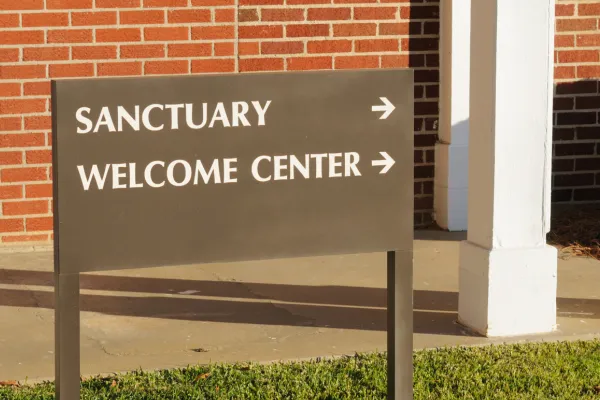
Top Ten Cultural Trademarks for a Guest Friendly Church
Who doesn’t want more first-time guests at their church at worship, bridge events, service opportunities, events, etc.? Nobody! Furthermore, what church doesn’t want every first-time guest to become a returning guest and a regular attender? No church!
That’s why I recommend that churches track how many first-time guests they receive each week and how many return. Both tracking and knowing these important facts are just as important of a measurement as any other such as worship attendance and offering. It’s one of the church’s indicators of its missional effectiveness.
Unfortunately, many churches do not track this important information. Of course, churches inherently desire and strive to consistently work towards increasing both the number of first-time guests and then the percentage of first-time guests who return. Yet, not only are some churches not tracking the information, but often there are also no intentional processes and procedures for receiving, hosting, or following up with guests.
More than anything, creating a culture of inviting, receiving, hosting, and engaging with new people is the key for missional effectiveness.
We all know that it is much easier to retain a first-time guest than it is to attract another new first-time guest. For churches desiring to create a more effective and healthier hospitality and guest culture, here is a quick overview of the top ten trademarks of a guest-friendly culture that receives, engages, and builds relationships with new and returning guests. Consider investing in a couple of these cultural shifts to get started.
Intentionality
Great first-time guest experiences are not accidental. Great experiences are the result of intentional processes and systems.
Culture
Churches with a high percentage of returning guests have a culture of hospitality and guest-readiness. A healthy guest-ready culture is created by engaging and training the entire congregation not only a Hospitality Team.
Details
Positive guest experiences are the culmination of multiple layers of well, thought-out and implemented details offered with excellence.
Authentic
Churches with a high percentage of returning guests offer an authentic experience (not from a sense of duty or a checklist). Authenticity is one of the most highly valued desires (expectations) in a new experience for guests.
Relationships
Churches who offer superior guest experiences understand this is an opportunity to invest in new relationships. This goes well beyond hospitality. It is about availing ourselves to new people and new relationships beyond our current friends and groups.
Exceed Expectations
Churches who excel at retaining first-time guests do not meet expectations, but instead exceed first-time guest expectations. Sometimes what a church considers as great hospitality practices are actually bare minimum guest expectations.
Mission-focused
Churches who offer superior guest experiences, are full of mature disciples who have discovered it is not about them. Instead, receiving guests is about sharing Jesus with more (and new) people continuously.
Online
Churches who receive a large number of guests have a guest-focused online presence. Too often the church’s messaging on websites and social media are directed at regular attenders rather than seekers.
Layered
Churches who offer superior guest experiences, offer layers of experiences from hospitality to connection to discipleship. From parking lot arrival to parking lot departure for onsite experiences. From sign on to sign off for online experiences.
Recommended
Churches who receive and retain guests understand the power of recommendations and strive towards building a reputation and practice of being recommended by both attenders and the community at large.
Which one or two guest-friendly cultural trademarks will your church invest in? The investment in creating a hospitable and relationship-building culture will create a 10X return on investment. Creating a seeker-friendly culture that authentically and intentionally invests in new people and relationships is key to the future of churches.

